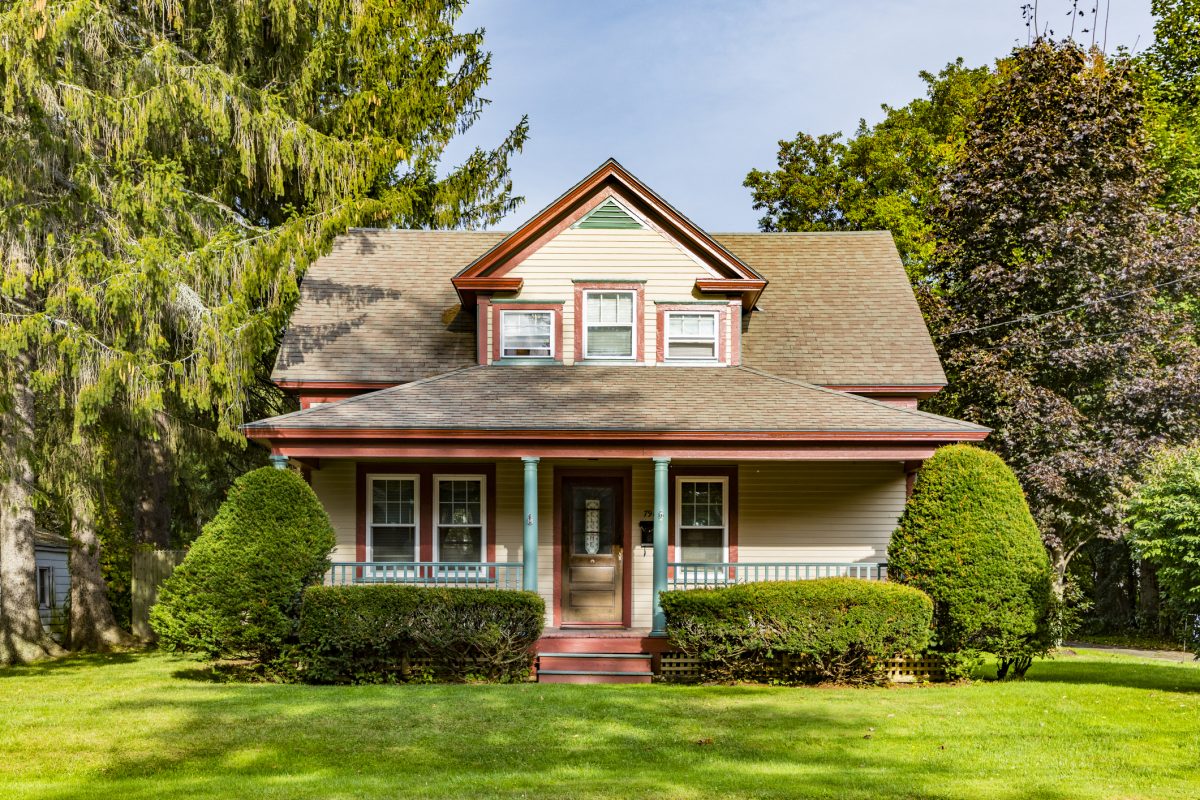A hundred years ago, a popular means for travelers to find a warm bed was in a boarding house. Now, with the help of online scheduling, a new version of boarding house has evolved: home-sharing. Sites like Airbnb and Vrbo are popular options for travelers looking for a break from hotel lobbies and housekeeping carts. Home-sharing is like Uber or Lyft, but applied to houses. It is a great opportunity for homeowners to make better use of their space and earn additional income while allowing travelers to enjoy a unique experience in a home environment.
Home-sharing is nothing new. It’s like the traditional bed-and-breakfast, except that meals are typically not provided. Travelers book a stay through a website and are provided instructions on how to check in and out. According to Pew Research, roughly one in ten Americans (around 11%) are opting for stays in this fashion. Whether it’s for a night, a weekend, or a month, and whether it’s one room or the entire space, this highlights the issue of how these properties should be insured. Specialized insurance is available, and solutions are simpler than you might imagine.
Risks
A standard homeowners insurance policy most likely does not cover losses incurred while a home or a room is rented. The reason is simple: home-sharing is a business and a standard homeowners policy is not designed for that. The physical property is utilized more often and the patrons are not familiar with it, thereby increasing the likelihood of it being damaged. Additionally, the homeowner has a duty of care for their patrons. If a traveler were to injure themselves at their location, the homeowner could be held liable.
Examples can help illustrate. Suppose a visitor adjusts the shower, but then inadvertently scalds themselves because they are not familiar with the controls, nor are they used to hot water being set so high. In such a situation, the homeowner could be liable for medical bills and damages. Or suppose a patron sets out for the day’s events, but fails to realize their child left a downstairs door unlatched which blows open in a gust of wind and freezes interior pipes. Either of these situations represent additional risk to the homeowner.
Rental and Insurance Types

Home-Sharing and Short-Term Rentals
Home-sharing is when a homeowner rents their house or room(s) of their home, typically through a scheduling website such as those mentioned previously. This is no different than other rental situations: the homeowner is simply renting space. Some insurance companies will allow homeowners to extend their existing policy to cover this for a one-time event. But for frequent rentals, most insurance companies will require a home-sharing endorsement be added to the existing policy. Some insurance companies will not be able to cover this, in which case a homeowner will need to obtain homeowners insurance from a different company or a dwelling fire policy. A bed and breakfast insurance policy is also a consideration.

Long-Term Rentals
If a homeowner plans to lease their home for a few months or a year, they will likely need a dwelling-fire policy. Some insurance carriers still provide homeowners insurance policies for long-term rentals, however they are the exception. Homeowners policies, if they can be procured for a long-term rental, usually provide better coverage and lower pricing than dwelling-fire policies.

Landlord Insurance
Another option worth mentioning is landlord insurance. This coverage, though currently not as popular or widely available as dwelling-fire protection, should be considered. If a homeowner lives in a portion of the home being rented, a landlord policy is usually not an option. Instead, it is meant for instances when the entire structure is rented out. However, some landlord policies allow a main dwelling to be added separately.
Such policies protect the physical structure of the rental, plus provide premises liability. The difference between this and a dwelling-fire policy is flexibility. A landlord policy can offer additional coverages and cover multiple locations. Depending upon the insurance company, coverages such as bed bugs, vandalism, and burglary are available. It can also protect personal property left on-site for maintenance or tenant use, such as lawnmowers or appliances. Lost rental value is another option, in case the home is out of service for a time.
Renters Insurance
A tenant’s personal possessions are not covered by the policies discussed here. Those are owned by the tenant and should be protected by their own homeowners or renters insurance policy. To avoid disputes, for long-term rentals, landlords usually require proof a tenant purchased renters insurance before a lease is signed.
The best means to insure your home and rental property depends upon many factors, including insurance companies available in your area. For questions, contact your Bankers Insurance agent. We will help determine your risks and advise how to best cover them. Not a client of ours? Let us compete for your business! Each of our clients is assigned a personal insurance agent and provided their email address as well as a phone number that rings right on their desk.
Was this post helpful?
- Share it using the links below
- Review all our personal insurance posts
- Subscribe to our newsletter




Comments are closed.